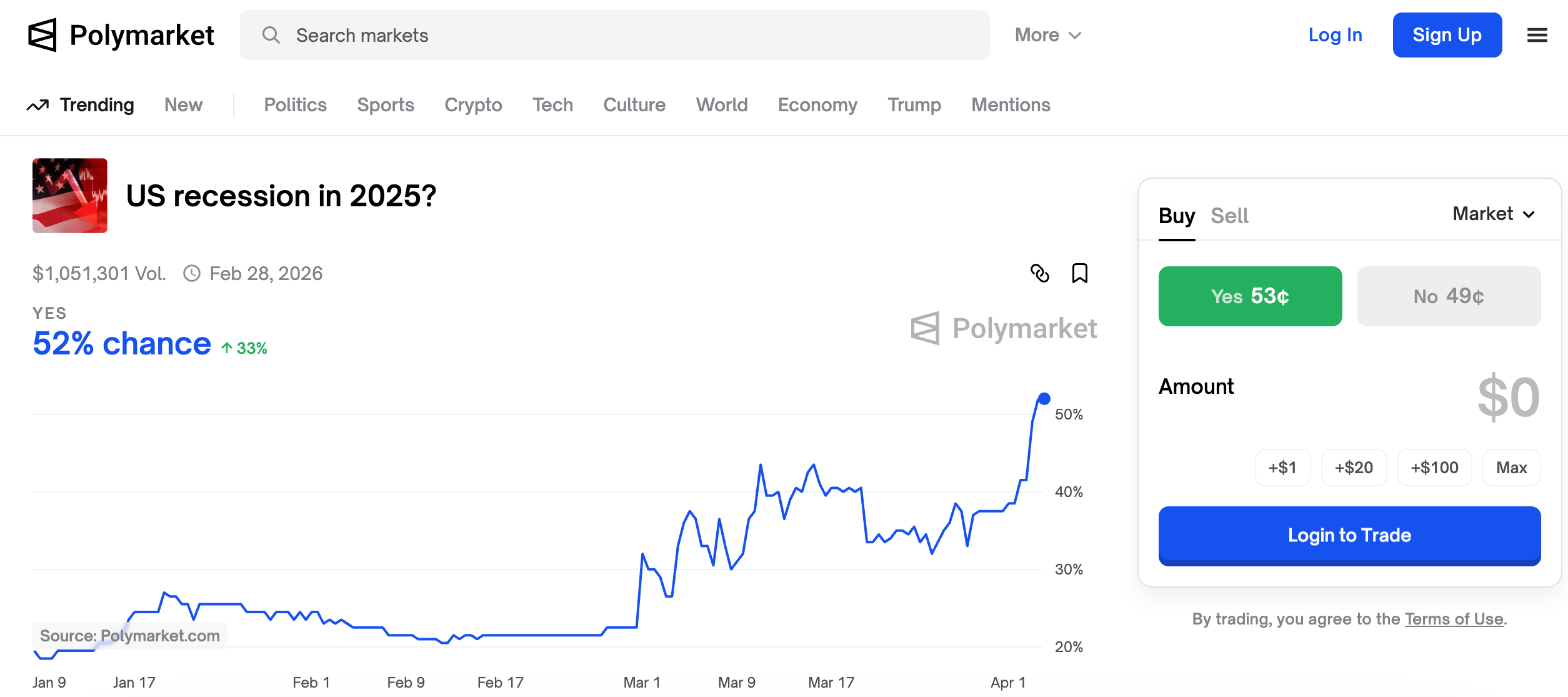
Concerns are mounting in the U.S. concerning a potential recession, spurred by new tariffs introduced by President Donald Trump. On platforms like Polymarket and Kalshi, traders are predicting over a 50% likelihood of an economic downturn this year.
On Polymarket, the probability of a recession surged above 50% for the first time since trading began on the betting contract ‘US Recession in 2025’ earlier this year. The price of the Yes shares increased from 39 cents to over 50 cents in less than 24 hours.
The contract will resolve to Yes if the National Bureau of Economic Research (NBER) confirms a recession at any point before December 31, following two consecutive quarters of GDP declines.
Kalshi, another prediction market, indicates growing anxiety among traders, with recession odds climbing from 40% to 54%.
Financial markets often respond in advance to rising recession odds, which can lead to declines in risk assets like Bitcoin (BTC). At the time of this publication, S&P 500 futures were down 3%, signaling heightened risk aversion.
The recently implemented tariffs impose a base rate of 10% on all imports, with additional charges for 60 nations identified as significant offenders, including a hefty 54% tariff on imports from China. These tariffs will come into effect starting April 5.
While the Trump administration anticipates these measures will alleviate persistent trade deficits, they are likely to contribute to domestic inflation and could provoke global instability, especially if other countries retaliate with their own tariffs, potentially igniting a global trade war.
Will the Risk Aversion Last?
Some analysts believe the uncertainty surrounding tariffs may only lead to a slowdown rather than an outright recession. According to UBS, while further tariff escalation remains a concern, their forecasts indicate growth for the U.S. economy around 2%—its historical average—this year.
Market reactions may not last, as expectations of Federal Reserve interest rate cuts could quickly reverse initial downturns. Joseph Wang, who runs a research portal fedguy.com, states that big tariffs are considered dovish and suggest the Fed may act to lower rates, countering initial market fears.





